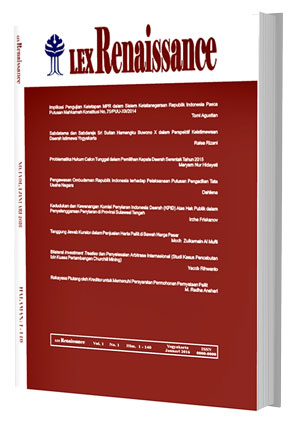Main Article Content
Abstract
The problems raised in this study are, first, what sort of liability does a notary having his term of office ended have against the deed made before the end of his term? Second, how is the legal protection of a retired notary in relation to the deed made before the term ending? This research is analyzed qualitatively in the form of descriptive research, and this study uses a legislative approach and a case approach with empirical juridical research. The results indicate that, first, the liability of a notary whose term of office has ended against violations of notary laws can be either administrative, civil, or criminal with various sanctions. Second, the legal protection for a retired notary in relation to the deed he makes before/after the term of office can include legal protection from the notary himself, legislative regulations, articles of criminal prosecution, and protection from the Indonesian Notary Association (INI).
Keywords: Retired notary; notary liability; notary legal protection
Article Details
Authors who publish with this journal agree to the following terms:
a. Authors retain copyright and grant the journal right of first publication with the work simultaneously licensed under a Creative Commons Attribution License that allows others to share the work with an acknowledgement of the work's authorship and initial publication in this journal.
b. Authors are able to enter into separate, additional contractual arrangements for the non-exclusive distribution of the journal's published version of the work (e.g., post it to an institutional repository or publish it in a book), with an acknowledgement of its initial publication in this journal.
c. Authors are permitted and encouraged to post their work online (e.g., in institutional repositories or on their website) prior to and during the submission process, as it can lead to productive exchanges, as well as earlier and greater citation of published work (See The Effect of Open Access).



